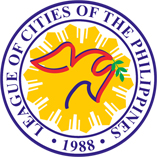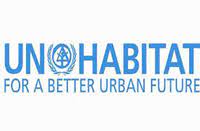Liveable cities
Every year, the World Bank and International Finance Corporation survey businessmen across 190countries on the topic “Ease of Doing Business”. The Doing Business report focuses on 10 common steps which entrepreneurs have to go through in their business life-cycle : Starting a Business (e.g., incorporation), Registering Property, Dealing with Construction Permits, Getting Electricity, Protecting Minority Investors, Getting Credit, Paying Taxes, Trading Across Borders (e.g., importing and exporting), Enforcing Contracts (e.g., going through courts), and Resolving Insolvency (e.g., closing a business).
The survey focuses on the number of steps and days it takes for a small or medium-scale business to go through each procedure. Countries which require fewer steps and less days rank higher than countries which consume more of your days and time. New Zealand is currently ranked No. 1 in the world while the Philippines is No. 113.
For the Philippines, the key problem lies in processes that are largely manualized. That’s because these processes were designed and put in place long before computers came into common use. They have, unfortunately, persisted long after computers came into use. A second key problem is that some processes were embodied in laws. Since these laws have not been amended or repealed, manual processes have remained in force. Finally, a third key challenge is that we have two layers of business permitting : the national government and local governments. To compound this challenge, local government rules differ from one city to another.
The National Competitiveness Council, through its Ease of Doing Business Task Force, has been working on introducing reforms to cut the days and speed up time for obtaining licenses and permits across the 10 indicators outlined above. One example of their work has been in the local government processes being undertaken by Quezon City, the city being studied by World Bank-IFC for the Ease of Doing Business report for the Philippines. Typically, only one city is studied per country.
Two particular processes in Quezon City have received a recent makeover : Business Permits and Construction Permits. The makeover hinges on a change in the philosophy and design of the offices issuing those permits. In the past, so-called One-Stop Shops were actually an array of desks representing different offices all placed in a single room so that all applicants had to do was go desk to desk to obtain a permit instead of going office to office. In reality, they were just really visiting different offices (albeit in the same room) and having to queue per desk.
Introducing the Concierge or Single-Window Service. In today’s new One-Stop Shop, the desks are still there but applicants no longer have to move from desk to desk. One merely has to take a computer-generated number and wait for his or her number to be called. Once called, all you have to do is submit all your papers and documents to a single window teller. A “concierge” will assist you. Your papers will then be moved through an assembly line of processors while you wait in comfort, oftentimes seated in air-conditioned lounges, until your number is called to receive your assessment. If an application and assessment is complicated as, say in Construction Permits, you will be given an appointment in a few days’ time to pick up the assessment. Once you pay, your license or permit will be released. It’s now as easy as 1-2-3 : submit documents, receive assessment, and pay. Your papers do the walking while you wait.
The new Concierge or One-Window Service is now available in Quezon City thanks to efforts from Mayor Herbert Bautista and his team working in partnership with the NCC, Department of Trade and Industry (DTI), Department of Interior and Local Government (DILG), and the Bureau of Fire Protection (BFP). Incidentally, this is a concept being practiced in other cities as well. We’re hoping it gains traction across more cities nationwide.
Guillermo M. Luz (gm.luz@competitive.org.ph) is Private Sector Co-Chairman of the National Competitiveness Council.











